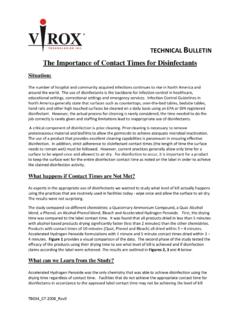Transcription of General Assembly 24 January 2012 - who.int
1 United Nations A/RES/66/2 General Assembly Distr.: General 24 January 2012 Sixty-sixth session Agenda item 117 11-45894 *1145894* Please recycle Resolution adopted by the General Assembly [without reference to a Main Committee (A/66 )] 66/2. Political Declaration of the High-level Meeting of the General Assembly on the Prevention and Control of Non-communicable Diseases The General Assembly Adopts the Political Declaration of the High-level Meeting of the General Assembly on the Prevention and Control of Non-communicable Diseases annexed to the present resolution. 3rd plenary meeting 19 September 2011 Annex Political Declaration of the High-level Meeting of the General Assembly on the Prevention and Control of Non-communicable Diseases We, Heads of State and Government and representatives of States and Governments, assembled at the United Nations on 19 and 20 September 2011, to address the prevention and control of non-communicable diseases worldwide, with a particular focus on developmental and other challenges and social and economic impacts, particularly for developing countries, 1.
2 Acknowledge that the global burden and threat of non-communicable diseases constitutes one of the major challenges for development in the twenty-first century, which undermines social and economic development throughout the world and threatens the achievement of internationally agreed development goals; 2. Recognize that non-communicable diseases are a threat to the economies of many Member States and may lead to increasing inequalities between countries and populations; 3. Recognize the primary role and responsibility of Governments in responding to the challenge of non-communicable diseases and the essential need for the efforts and engagement of all sectors of society to generate effective responses for the prevention and control of non-communicable diseases; A/RES/66/2 2 4. Recognize also the important role of the international community and international cooperation in assisting Member States, particularly developing countries, in complementing national efforts to generate an effective response to non-communicable diseases; 5.
3 Reaffirm the right of everyone to the enjoyment of the highest attainable standard of physical and mental health; 6. Recognize the urgent need for greater measures at the global, regional and national levels to prevent and control non-communicable diseases in order to contribute to the full realization of the right of everyone to the highest attainable standard of physical and mental health; 7. Recall the relevant mandates of the General Assembly , in particular resolutions 64/265 of 13 May 2010 and 65/238 of 24 December 2010; 8. Note with appreciation the World Health Organization Framework Convention on Tobacco Control,1 reaffirm all relevant resolutions and decisions adopted by the World Health Assembly on the prevention and control of non-communicable diseases, and underline the importance for Member States to continue addressing common risk factors for non-communicable diseases through the implementation of the World Health Organization 2008 2013 Action Plan for the Global Strategy for the Prevention and Control of Non-communicable Diseases2 as well as the Global Strategy on Diet, Physical Activity and Health3 and the Global Strategy to Reduce the Harmful Use of Alcohol;4 9.
4 Recall the ministerial declaration adopted at the 2009 high-level segment of the Economic and Social Council,5 in which a call was made for urgent action to implement the Global Strategy for the Prevention and Control of Non-communicable Diseases and its related Action Plan; 10. Take note with appreciation of all the regional initiatives undertaken on the prevention and control of non-communicable diseases, including the Declaration of the Heads of State and Government of the Caribbean Community entitled Uniting to stop the epidemic of chronic non-communicable diseases , adopted in September 2007, the Libreville Declaration on Health and Environment in Africa, adopted in August 2008, the statement of the Commonwealth Heads of Government on action to combat non-communicable diseases, adopted in November 2009, the declaration of commitment of the Fifth Summit of the Americas, adopted in June 2009, the Parma Declaration on Environment and Health, adopted by the member States in the European region of the World Health Organization in March 2010.
5 The Dubai Declaration on Diabetes and Chronic Non-communicable Diseases in the Middle East and Northern Africa Region, adopted in December 2010, the European Charter on Counteracting Obesity, adopted in November 2006, the Aruba Call for Action on Obesity of June 2011, and the Honiara Communiqu on addressing non-communicable disease challenges in the Pacific region, adopted in July 2011; _____ 1 United Nations, Treaty Series, vol. 2302, No. 41032. 2 Available at 3 World Health Organization, Fifty-seventh World Health Assembly , Geneva, 17 22 May 2004, Resolutions and Decisions, Annexes (WHA57/2004/REC/1), resolution , annex. 4 World Health Organization, Sixty-third World Health Assembly , Geneva, 17 21 May 2010, Resolutions and Decisions, Annexes (WHA63/2010/REC/1), annex 3. 5 See Official Records of the General Assembly , Sixty-fourth Session, Supplement No. 3 (A/64/3 ), chap. III, para. 56. A/RES/66/2 3 11.
6 Take note with appreciation also of the outcomes of the regional multisectoral consultations, including the adoption of ministerial declarations, which were held by the World Health Organization in collaboration with Member States, with the support and active participation of regional commissions and other relevant United Nations agencies and entities, and served to provide inputs to the preparations for the high-level meeting in accordance with resolution 65/238; 12. Welcome the convening of the first Global Ministerial Conference on Healthy Lifestyles and Non-communicable Disease Control, which was organized by the Russian Federation and the World Health Organization and held in Moscow on 28 and 29 April 2011, and the adoption of the Moscow Declaration,6 and recall resolution of the World Health Assembly ;7 13. Recognize the leading role of the World Health Organization as the primary specialized agency for health, including its roles and functions with regard to health policy in accordance with its mandate, and reaffirm its leadership and coordination role in promoting and monitoring global action against non-communicable diseases in relation to the work of other relevant United Nations agencies, development banks and other regional and international organizations in addressing non-communicable diseases in a coordinated manner; A challenge of epidemic proportions and its socio-economic and developmental impacts 14.
7 Note with profound concern that, according to the World Health Organization, in 2008, an estimated 36 million of the 57 million global deaths were due to non-communicable diseases, principally cardiovascular diseases, cancers, chronic respiratory diseases and diabetes, including about 9 million deaths before the age of 60, and that nearly 80 per cent of those deaths occurred in developing countries; 15. Note also with profound concern that non-communicable diseases are among the leading causes of preventable morbidity and of related disability; 16. Recognize further that communicable diseases, maternal and perinatal conditions and nutritional deficiencies are currently the most common causes of death in Africa, and note with concern the growing double burden of disease, including in Africa, caused by the rapidly rising incidence of non-communicable diseases, which are projected to become the most common causes of death by 2030; 17.
8 Note further that there is a range of other non-communicable diseases and conditions, for which the risk factors and the need for preventive measures, screening, treatment and care are linked with the four most prominent non-communicable diseases; 18. Recognize that mental and neurological disorders, including Alzheimer s disease, are an important cause of morbidity and contribute to the global non-communicable disease burden, for which there is a need to provide equitable access to effective programmes and health-care interventions; 19. Recognize that renal, oral and eye diseases pose a major health burden for many countries and that these diseases share common risk factors and can benefit from common responses to non-communicable diseases; _____ 6 See A/65/859. 7 See World Health Organization, Sixty-fourth World Health Assembly , Geneva, 16 24 May 2011, Resolutions and Decisions, Annexes (WHA64/2011/REC/1).
9 A/RES/66/2 4 20. Recognize that the most prominent non-communicable diseases are linked to common risk factors, namely tobacco use, harmful use of alcohol, an unhealthy diet and lack of physical activity; 21. Recognize that the conditions in which people live and their lifestyles influence their health and quality of life and that poverty, uneven distribution of wealth, lack of education, rapid urbanization, population ageing and the economic social, gender, political, behavioural and environmental determinants of health are among the contributing factors to the rising incidence and prevalence of non-communicable diseases; 22. Note with grave concern the vicious cycle whereby non-communicable diseases and their risk factors worsen poverty, while poverty contributes to rising rates of non-communicable diseases, posing a threat to public health and economic and social development; 23.
10 Note with concern that the rapidly growing magnitude of non-communicable diseases affects people of all ages, gender, race and income levels, and further that poor populations and those living in vulnerable situations, in particular in developing countries, bear a disproportionate burden and that non-communicable diseases can affect women and men differently; 24. Note with concern the rising levels of obesity in different regions, particularly among children and youth, and note that obesity, an unhealthy diet and physical inactivity have strong linkages with the four main non-communicable diseases and are associated with higher health costs and reduced productivity; 25. Express deep concern that women bear a disproportionate share of the burden of caregiving and that, in some populations, women tend to be less physically active than men, are more likely to be obese and are taking up smoking at alarming rates; 26.

















